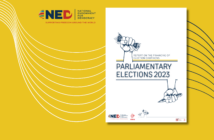In 2014, the Government of Montenegro signed a contract with Chinese company China Road and Bridge Corporation (CRBC) to design and build the first out of three planned sections of the Bar-Boljare highway. The construction of this section of the highway is financed by a loan from the Chinese EXIM Bank through a special programme of the Chinese Government, dedicated to the countries of Central and Eastern Europe.
This project was approved by the Parliament of Montenegro, which adopted a special Law on the Bar-Boljare Highway and envisaged a series of subsidies during its implementation.
Works on the first section started in May 2015 and the deadline for completion was four years. This deadline has been extended by one year, thus, completion of the works was expected in September 2020. The works have been additionally postponed due to the pandemic, and the new deadline is unknown to the public, as well as who will bear the consequences due to the delay, which increases the price of the loan and delays the economic valorisation of the project.
In the meantime, it turned out that there were numerous unforeseen and additional works that are necessary in order to put that section into operation, so the price of one of the most expensive highways in the world has been further increased.
Tara River, which is under international protection, has been devastated during the construction of the highway. The European Parliament, the European Commission, UNESCO and numerous international and local organizations have indicated that the problem of Tara River devastation must be addressed.
However, there has been no progress, and less and less information on the construction of this significant infrastructure facility is available to the public.
Representatives of the executive authority and other institutions responsible for highway control and supervision persistently ignore all calls from civil society for public dialogue.
This document provides an overview of publicly available data on highway construction financing, government subsidies given to the contractor and subcontractors, as well as additional and subsequent works contracted so far.
Special chapter contains information on Montenegrin companies engaged in the highway construction, as well as the effects that the project has on employment. Issues with access to information have been documented through case studies that also contain court practice review.
The last part of the document provides information on other major projects that have significant environmental impact, such as planned construction of the second block of Thermal Power Plant in Pljevlja, as well as construction in the area of Ulcinj Salina, Buljarica, Skadar Lake and protected area of Kotor.
Complete case study download HERE (PDF)



